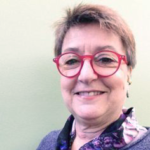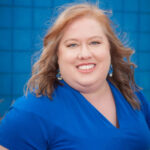EVENTS:
Refer to the CALENDAR (not yet updated for 2024) or SESSIONS and MEET-UPS.
COURSES:
LCL24 is offering two courses.
- COURSE 1: Document Design
- COURSE 2: Career Discernment
Both courses are described below. For course REGISTRATION go HERE (not yet updated for 2024).
COURSE 1: Document Design
Document design is the practice of structuring text, images and other elements so that the message of the document is conveyed, and the reader can easily accomplish any action or instruction required.
Seems like a simple activity for anyone? Lots of people are overwhelmed when asked to edit a document, and don’t have good intuitions about the relationships between text and images. Linguists come prepared to edit for busy, distracted readers, and can employ methods to evaluate whether the newly structured document is indeed easier to read and use.
This course offers a qualitative research activity, in the style of user research recommended by the Handbook of Usability Testing, 2nd edition.
Class project: We will be revising the California Olive Oil Council’s (COOC) Seal Certification Kit for extra virgin olive oil, as shown on its website https://cooc.com/certification-process/. From personal experience and discussions with other producers, the instructor recognizes the Kit is more complicated and repetitious than it needs to be. It’s ripe for revision.
This course will emphasize teamwork as we prioritize what to change. Students will have an opportunity to create a one-page research proposal, interview scripts, and a screener for study participants. The teams will analyze results of interviews, revise a document that has consequences for the product and income of the COOC members, and review the resulting document through additional interviews with producers.
- Week 1 will focus on the document and possible directions for revision. We’ll learn about Plain Language, consider our audiences, and learn about the steps in a usability test. We’ll invite the current users of this document to help us review the document (through interviews/observations). We will consider other certifications for food, such as non-GMO and Kosher designations to determine what amount of effort each of those requires compared to the COOC Seal Certification Kit.
- During Week 2, students will create recommendations for a revised document, based on analysis of the sessions from Week 1, and insights from other certifications. We want to confirm that our revised version is less confusing and repetitious, saves time for producers, or reduces the staff support, and doesn’t introduce new difficulties.
- Week 3 is left to create a presentation of our findings and recommendations for the key stakeholders of this research, the Board of Directors of the COOC. And we’ll also focus on how students can create individual portfolio pieces that represent their contributions and learnings from this engagement. We’ll discuss how the methods we used in this brief project can be adapted and expanded for other kinds of documents and products.
Besides revising the Seal Certification Kit, our recommendations may impact the processes defined in the document. What effect will any new or changed process have on staff? On partners involved with the certification process? On the small producers? On the larger producers?
For a portfolio project, each person in the course can choose which of these artifacts shows off their contribution to the work, or may create a different theme as their insight about the work, the context and the people involved.
Topics and artifacts:
- Plain language, structured text, interplay of images & words
- Audience for the document
- Competitive analysis
- Kosher certification
- non-GMO certification
- Usability testing protocol
- 1 pager for stakeholders and team
- Recruiting screener
- Schedule (remote? In person?)
- How much to cover in one test?
- Interview script (with existing Kit)
- Interview script (with revised Kit)
- Observations (aka the Study)
- Interviewer ≠ Notetaker, when possible
- Notetaking
- Capture behavior (including prosody, evaluative or affective gesture)
- Key hypotheses…
- How many audiences?
- Veterans vs Newbies?
- Large Co vs Solo ops?
- How many participants? (cf. Nielsen’s 5 + pilot)
- Qualitative analysis & report
- Slide deck of findings and recommendations
- Client communication & management
- Who is the audience for the report and responsible to make change based on findings?
- How much contact and by whom?
- Presentation of findings & recommendations
- Updated versions of document(s)
- Communicate change to audience(s)
- Portfolio: What do you put in your portfolio? How to recognize an individual’s role/responsibilities as well as team’s accomplishments? How does each person talk about their contributions?
Instructor Bio:
The Document Design course is taught by Dr. Nancy Frishberg.

Nancy Frishberg (she/her) has been a linguist in industry, since 1985. She currently calls herself a User Experience (UX) Strategist and Researcher. Frishberg has combined her expertise in language and human cognition with a longstanding interest in technology, working at IBM, Apple, Sun Microsystems and several consulting firms on behalf of clients in education, health and wellness, digital media, financial services, and civic design.
Most recently, she has been coaching teams, typically those seeking to learn more about UX methods and operations, and individuals, especially career changers, exploring new options for work.
She earned all her degrees in linguistics: AB (with honors) at University of California, Berkeley, the MA and PhD at University of California, San Diego. Her first career, in academia, focused on sign languages of Deaf people. She authored the primary reference text for training sign language interpreters, Interpreting: An Introduction, still in print after 35 years. This written examination for the US Registry of Interpreters for the Deaf to certify interpreters is based on this book.
Frishberg currently lives in rural Livermore, CA, on a ranch where they grow olives and produce EVOO.
Websites:
http://www.fishbird.com (UX. and language)
http://www.RanchoMilagro.us (extra virgin olive oil).
COURSE 2: Career Discernment
“Let me show you what I’m going to do with my degree in linguistics!”
Learn how to demonstrate how your unique set of skills – from critical thinking to cross-cultural competency – make you invaluable in any professional setting.
Every linguist wants to find meaningful expression of their research and analytical skills and training. Fortunately, navigating the professional realm with purpose and discernment requires both research and analysis. This course is designed to help participants prepare for what’s next by first noticing how they have already been expressing themselves professionally (through choices in coursework, research projects, previous professional experiences, volunteer work, etc.). This grounding is helpful for 1) identifying the challenge(s) you want to tackle next 2) identifying others who are confronting these challenges (organizations of interest for example) and then 3) finding ways to contribute and collaborate as a linguist. Ultimately, you will design ways of talking about your work that will enable potential colleagues to experience the benefit of bringing you on board – why hiring a linguist would be a great decision!
Through interactive sessions and practical exercises, participants will gain valuable experience in talking about themselves, and specifically how they work. We will focus on how to frame skills effectively in job searches and networking endeavors to enable “would-be collaborators” to easily see how linguists think, work, and solve challenges. The course is designed not only to yield a set of “Grab-and-Go” language to be used in written and verbal career conversations, but ultimately to empower and equip career linguists with a sense of “choicefulness” and abundance when it comes to thinking about career next steps (where they might currently be sitting with overwhelm and scarcity).
This course will not be a repeat of the content in the general LCL program. Rather, it serves as an additional space for attendees to explore and apply LCL themes through in-depth peer collaboration. If you are someone who thrives in hands-on group settings, this course will provide an environment where you can immediately build on the main LCL program as you “try on” new ways of communicating about yourself and the ways that you can meaningfully contribute to the challenges that speak to you.
Instructor Bio:
The Career Discernment course is taught by Dr. Anna Marie Trester.

Anna is the founder of Career Linguist and is a career readiness instructor at Boise State University. As the author of Bringing Linguistics to Work and Employing Linguistics for Bloomsbury Press, she speaks and gives workshops as Career Linguist and with organizational partners PIER Consulting Group, The FrameWorks Institute, and Anecdote International.
Prior to joining FrameWorks, she served as the director of the MA in Language and Communication (MLC) program for the Department of Linguistics at Georgetown University, where she worked with students to apply their sociolinguistic training to professional contexts. In addition to her work at Boise State, she has taught courses at Georgetown University, Howard University, and University of Maryland, University College. Her courses have covered cross-cultural communication, language and social media, and the ethnography of communication.
As an applied sociolinguist, Anna has research interests in improvisation, performance, narrative, intertextuality, professional self-presentation, language and identity, language in social media, and the language of business. She is the co-editor (with renowned linguistics professor Deborah Tannen) of Discourse 2.0, published in 2013 by Georgetown University Press. Anna was profiled by the Linguistics Society of America in its December, 2014, member spotlight. She received her MA from New York University and her PhD in linguistics from Georgetown University.
Website/Books:
